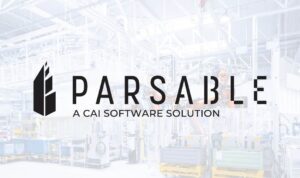Celebrating Parsable’s Military Veterans
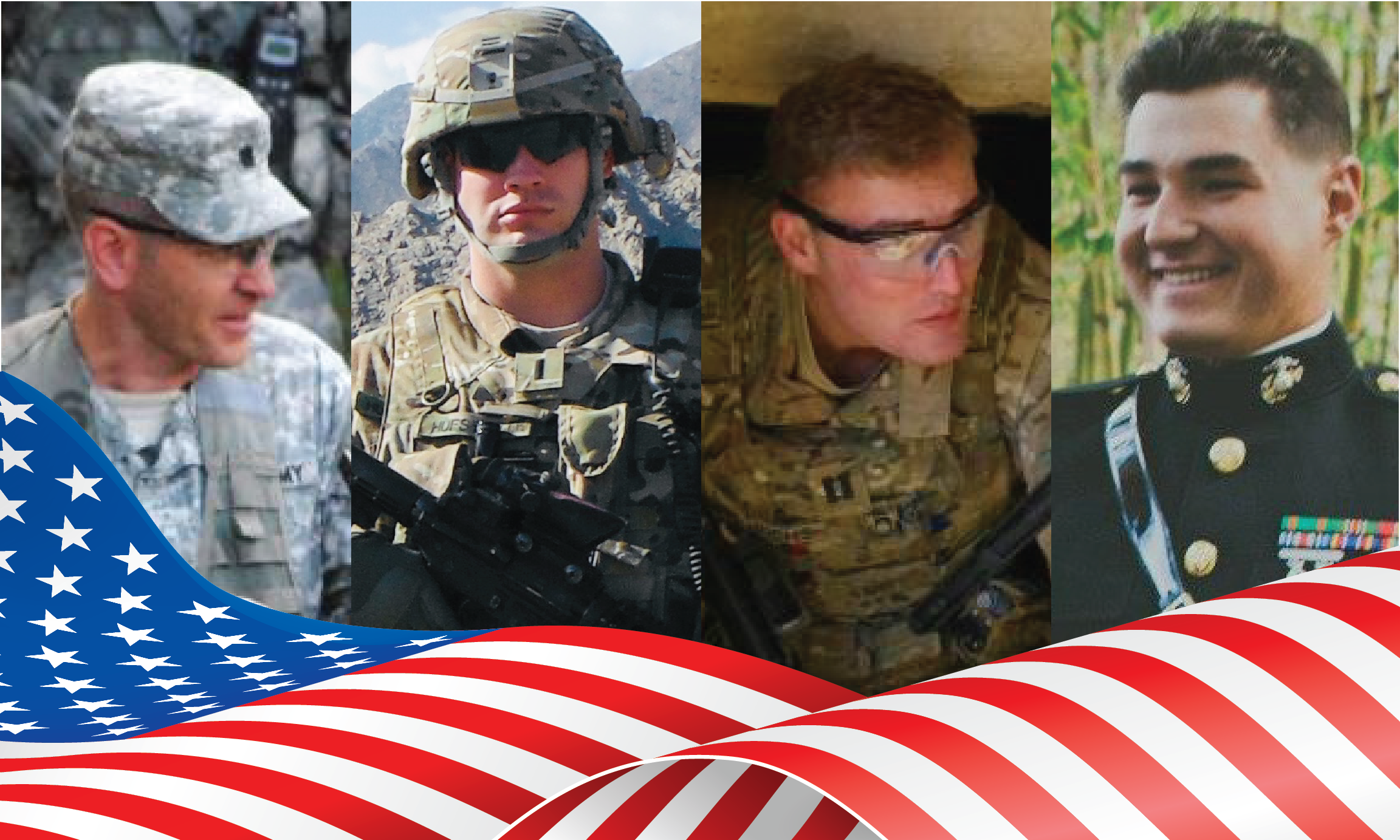 Today is Veterans Day, a moment to appreciate and honor those who have served the United States and continue to do so. At Parsable, we’re so fortunate to have several veterans on our team whose experience in the military gives them a unique understanding of Parsable’s customers and how our Connected Worker Platform helps modernize their workers on the frontlines – not to mention a sense of discipline, focus and self-motivation that we all admire.
Today is Veterans Day, a moment to appreciate and honor those who have served the United States and continue to do so. At Parsable, we’re so fortunate to have several veterans on our team whose experience in the military gives them a unique understanding of Parsable’s customers and how our Connected Worker Platform helps modernize their workers on the frontlines – not to mention a sense of discipline, focus and self-motivation that we all admire.
In honor of Veterans Day, we interviewed five Parsable veterans and share their stories: Wolf Hindrichs, Tyler Hufstetler, Alex Melton, Jeremy Wagner and Jesse Zuck. Thank you for your commitment to our country.
Tell us about your experience in the military.
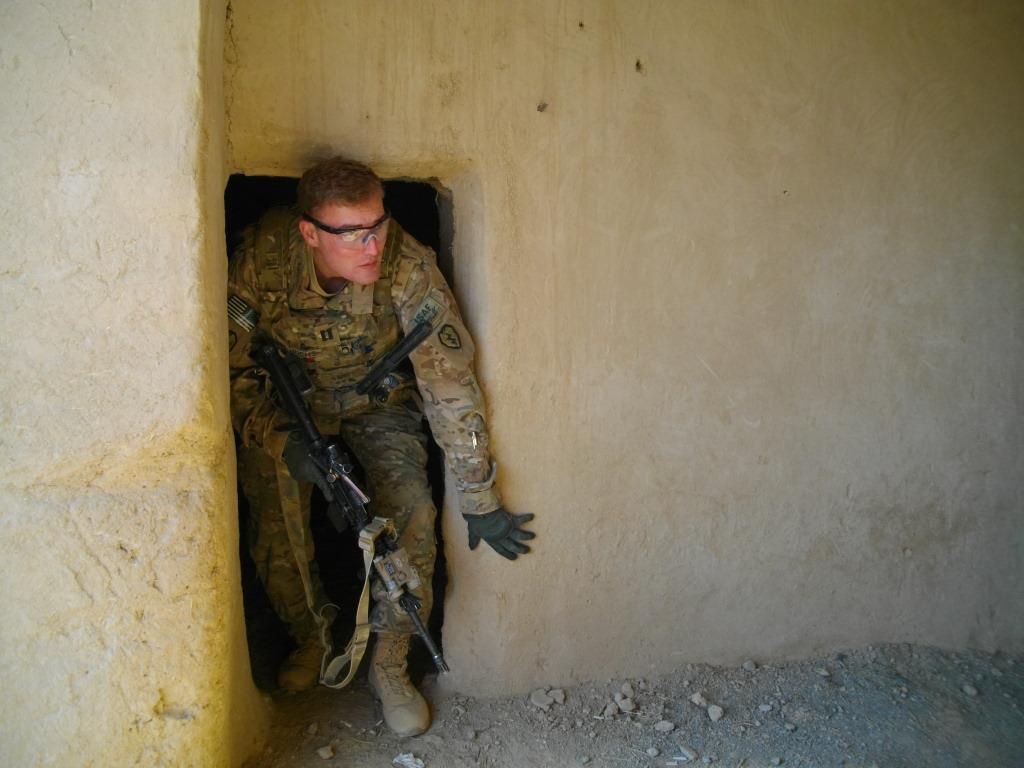 Wolf: When I was 17 years old, I enlisted in the Virginia National Guard as an infantryman. After high school, I attended the U.S. Military Academy at West Point and received a commission in the U.S. Army Field Artillery. I like to tell people that I’ve had the opportunity to live everywhere from Alaska to Australia, with a few stops in between, including several deployments to the Middle East.
Wolf: When I was 17 years old, I enlisted in the Virginia National Guard as an infantryman. After high school, I attended the U.S. Military Academy at West Point and received a commission in the U.S. Army Field Artillery. I like to tell people that I’ve had the opportunity to live everywhere from Alaska to Australia, with a few stops in between, including several deployments to the Middle East.
As an artillerist and joint fires specialist, I was responsible for coordinating and delivering assets to support our ground operations. I can best summarize that as being pretty handy with a radio and a map. A military career is a progression of responsibility – from being responsible for yourself to ultimately being in charge of large teams and being in a position to meaningfully impact the lives of your soldiers and their families.
My most recent assignment was to the Pentagon, where I worked alongside some of the foremost thinkers in the Army in a massive undertaking to develop and deploy an enterprise resource planning (ERP) solution to replace hundreds of legacy systems and bring Army talent management into the 21st century.
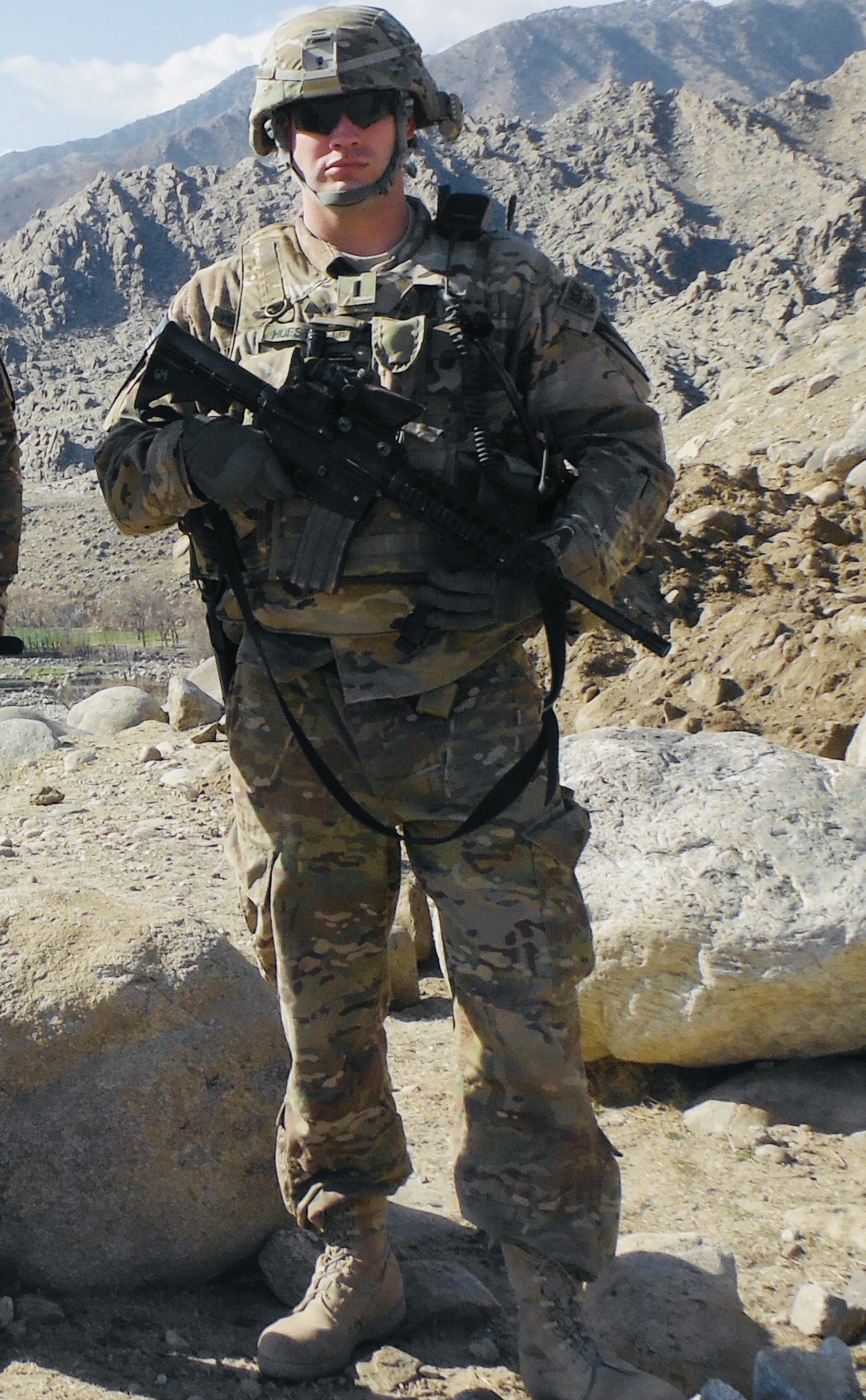 Tyler: I went to West Point right out of high school. While at West Point, I did an internship with Occidental (Oxy) Petroleum in Argentina, where I worked in sales and marketing. I had a great relationship with the guys I worked with there, and they went on to launch the California Resources Corporation (CRC), a leading producer of oil and natural gas focused exclusively on California.
Tyler: I went to West Point right out of high school. While at West Point, I did an internship with Occidental (Oxy) Petroleum in Argentina, where I worked in sales and marketing. I had a great relationship with the guys I worked with there, and they went on to launch the California Resources Corporation (CRC), a leading producer of oil and natural gas focused exclusively on California.
I had a five-year commitment to the U.S. Army, but kept in touch with these guys. When my five years with the U.S. Army ended, I went from a uniform to a suit over the course of a weekend, and began working for CRC. It was a really awesome opportunity, and a great stepping stone. Now I live in my hometown of Dallas with my wife and four little ones. I wanted to come back home and found a great opportunity with Parsable.
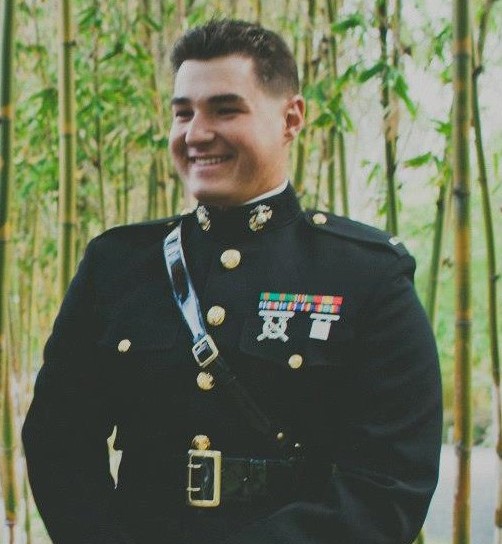 Alex: I was in the Marine Corps for eight years on active duty and four years in the reserves. As an infantry officer, I deployed around the Middle East in response to the Arab Spring uprisings. For the last half of my career I ran a specialized unit made up of Navy Explosive Ordnance Disposal technicians and Reconnaissance Marines that specialized in covert hunting and neutralizing underwater mines off enemy beaches. I was very lucky to be a part of this unit, as we were the only active duty military unit that used trained dolphins, underwater drones and combatant divers to clear underwater minefields. It was an experience that took me around the world, and gave me an opportunity to work in a very exciting and challenging environment.
Alex: I was in the Marine Corps for eight years on active duty and four years in the reserves. As an infantry officer, I deployed around the Middle East in response to the Arab Spring uprisings. For the last half of my career I ran a specialized unit made up of Navy Explosive Ordnance Disposal technicians and Reconnaissance Marines that specialized in covert hunting and neutralizing underwater mines off enemy beaches. I was very lucky to be a part of this unit, as we were the only active duty military unit that used trained dolphins, underwater drones and combatant divers to clear underwater minefields. It was an experience that took me around the world, and gave me an opportunity to work in a very exciting and challenging environment.
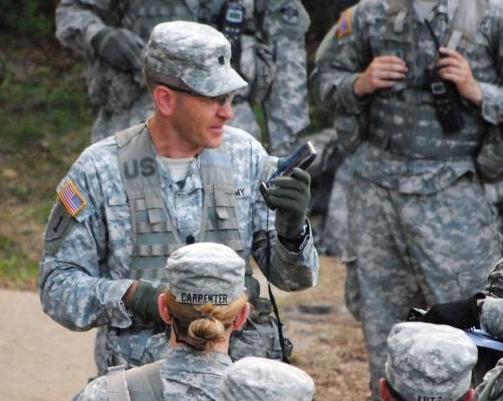 Jesse: I enlisted in the U.S. Army directly out of high school and was in the military for 25 years. My first assignment was to West Germany in 1986 during the Cold War when the Army was preparing in case East Germany was to attack West Germany. Later, I attended West Point, where I earned a commission and served as an officer for the rest of my career. Over the course of several years, I had various roles including platoon leader, executive officer and commander, to name a few. My assignments took me to domestic locations and overseas, including a tour in Iraq and one in Saudi Arabia.
Jesse: I enlisted in the U.S. Army directly out of high school and was in the military for 25 years. My first assignment was to West Germany in 1986 during the Cold War when the Army was preparing in case East Germany was to attack West Germany. Later, I attended West Point, where I earned a commission and served as an officer for the rest of my career. Over the course of several years, I had various roles including platoon leader, executive officer and commander, to name a few. My assignments took me to domestic locations and overseas, including a tour in Iraq and one in Saudi Arabia.
I was later chosen to go back and teach at West Point, after earning a master’s degree in philosophy at the University of Texas. During my tenure as a professor, I taught logic, ethical theory and Just War Theory, preparing future U.S. Army officers to serve and fight our wars in an ethical way. After leaving the military, I spent a couple of years as an operations manager for Target Corporation and as a business consultant before landing at Parsable, where I work remotely from Savannah, Ga.
 Jeremy: I was a medic with the 101st Airborne Division at Ft. Campbell, Ky. Did a lot of work with patient care in field hospitals as well as clinics. I was trained for what people saw in the movie “Blackhawk Down,” but was never deployed in wartime.
Jeremy: I was a medic with the 101st Airborne Division at Ft. Campbell, Ky. Did a lot of work with patient care in field hospitals as well as clinics. I was trained for what people saw in the movie “Blackhawk Down,” but was never deployed in wartime.
What inspired you to join the Parsable team?
Wolf: My friend and colleague, Tyler, brought me into the Parsable team. He said the team was looking for people who could connect with frontline workers, identify where Parsable could benefit them, and translate that back to the software side of the house. Parsable is committed to preserving the value and human dignity of work, empowering people and improving their performance with technology instead of trying to replace them with it. I was looking for a career where the skills I learned in the military would be useful, where I could continue to learn, and most importantly, where I’d be able to have a positive impact on people who needed help.
In the military, my job was to take care of my soldiers, and, by extension, their families. My job at Parsable also centers around taking care of people – helping them perform their work more safely and efficiently, as well as growing their skills-base. I joined the team as an implementation consultant and recently became a global value consultant. I meet with customers, learn their pain points, identify where Parsable is going to be useful for them, and help roll it out across their organization.
Tyler: In 2018, I had a classmate who was working for Parsable at the time and told me about the opportunity, and I joined the company that fall. Understanding the nature of deployment, connecting with workers on shop floors, and translating strategy to tactical decisions are things the military does a great job of helping us understand. Even in business terms, you have your objectives.
We’re helping to drive efficiency, get real-world cost savings, provide tangible results. In larger organizations, you’re another person in the machine. Coming in with my background – I was a combat advisor in Afghanistan, among various positions – it’s great to see real-world results on the ground. It helps provide purpose to your mission.
Alex: The idea of working for a technology startup had never really occurred to me. I remember during my interview, Kiyomi Otani, who became my boss when I was hired, wanted to make sure that I was interested in an early stage startup that required everyone to be extremely flexible as the company grew and shifted, and that they really needed people who were proactive and could fill in wherever there was a need. Even though this was meant to serve as a caution, that really excited me. It felt very much like my experience in the military, where it’s not enough to say “that’s not my job.” When you see something that needs to be done, you do it, because if you don’t, it may impact the unit as a whole. This level of ownership and impact, plus the opportunity to help deskless workers, really inspired me to want to join the team.
Jeremy: (Parsable CEO) Lawrence’s passion; I followed him for 2.5 years before I joined, this was after my interview with Lawrence, and I stayed in touch with him. Also, love the relevancy of what we can fix in the real world.
Jesse: I was drawn to the company’s mission of empowering frontline workers with digital tools. With the industrial sector becoming more and more automated, Parsable’s human-centric view is an important one for the industry. The world needs technology and being a part of that change was the primary attraction to Parsable.
The type of work I do at Parsable also aligns well with the work I did at Target, where I was training and managing a team of deskless workers. Further, my experience in the military helped me prepare for both jobs, and I see ways that Parsable would be a good fit for the military.
What skills did you master in the military that have benefitted you in your work at Parsable?
Wolf: With the military, a lot of systems were developed in the ’50s and ’60s – and they haven’t changed as much as you would expect. Like many large organizations, the military tends to be resistant to change. Especially in my last role, I gained a lot of experience working with people who were comfortable doing business the same way they had over the last 20, 30 years. It’s the same way with a lot of the large businesses we work with in Parsable.
A military unit is a cross-functional team, bringing soldiers with specialized skill sets together to accomplish a mission. Like the military, Parsable builds cross-functional teams to go out and accomplish a mission. The mission’s different, but we rely on each other’s skills to reach our goals and best serve our customers. In the military, you also learn to be incredibly flexible. You think you know what you’re going to get into, but you need to be quick, dynamic and adaptable, because no plan ever survives first contact. At Parsable, I also need to quickly learn about different types of industries, customers and their business processes. One day, I might be learning about harvesting corn in South America, on another about testing automotive components in the midwest.
Tyler: In the Army, they do a really good job of problem solving. Everybody is a project manager to some extent. There are always deadlines, milestones to pursue and costs to keep track of. Being able to be at a high level to see where you’re trying to go, and identifying how to get there, is something that the Army truly helped me with.
A military background has taught me to be perpetually honest, always forthright about what’s going to happen, what’s in control and what’s not, and how to build a coalition in order to create action. True leaders have to build that. That’s really translated well in the private sector because of our customers. I’m honest with them and want to see value for them, and I think that our customers truly appreciate that about Parsable.
Alex: In terms of my actual military training, I apply what I learned in military operations and planning on a daily basis. My time in the Marine Corps taught me about the importance of solid planning, effective communication of your plan to your people, and the ability to be flexible and not fall in love with the plan when it isn’t working. These are concepts that have really helped in working at a startup with employees and customers all over the world, and a workspace that has to remain flexible and agile in order to be successful.
Jeremy: Diagnosis of problems, selling by teaching, the realization that nothing in the civilian world sucks worse than sleeping in a mud hole! Work ethic was also a big lesson. The biggest lesson learned was the “team mentality.” We are only as good as our weakest link, and it’s up to all of us to make the group better.
Jesse: During my tours of duty, I spent time training indigenous forces combat techniques in Iraq and Saudi Arabia. At Parsable, I spend time with frontline workers training them on how to use our Connected Worker Platform. In both cases, I’m on-site, advising groups of people on how to effectively adapt to the technological changes of the 21st century, which can be difficult. The main difficulty is establishing credibility with those you’re advising. At Parsable, I feel that my background in the military lends credibility to the lessons I provide to frontline workers.
My time in the Army has also taught me about follow-through and attention to detail. In the military, you must finish projects. There are inspections and a certain pressure to get things exactly right. Those skills have been helpful in every job I’ve had.

How was the transition from your military experience to civilian work?
Wolf: You know, I was very lucky. Sometimes when people transition out of the military, there’s a sense of a loss of fellowship and camaraderie, even a loss of purpose. However, that’s not something I’ve experienced in my current role. We may be spread across the globe, but we’re really connected. Parsable recognizes the value that veterans bring to the workplace, and also expressly wants to help us expand our skills into the tech industry.
Tyler: For Wolf, this was his first job out of the military, so being here collectively and having a trusted support network from day one has been very helpful. Anytime you have a shared background with someone, it works well. Jesse and I talk daily; he and I are on the same accounts. Given the shared background that Jesse and I have, we speak the same language and understand each other, which is a major trust factor. While Wolf isn’t on the same accounts as us, we still collaborate with him frequently.
Alex: After I got out of the Marine Corps, I attended an accelerated Masters program and planned to apply for a federal job after graduation. Unfortunately, by the time I graduated there was a federal hiring freeze, so there were no positions available. I was left trying to figure out what kind of job or career I could do while I waited for a federal job to open up. I was looking at large companies that, to me, seemed liked places where it would be difficult to have any real impact to their success or failure. Plus, many companies, while “appreciated my service,” didn’t really see me as having anything more to bring than someone fresh out of college. Then, a friend of mine from grad school, who had recently gotten out of the Navy, called me and told me about Parsable.
Parsable recognized how people from the military could help bridge the gap between Silicon Valley and their customers in the “flyover states.” They really needed people who could work independently with customers, and work as a team with other Parsable employees. I was able to jump right in to working with Fortune 100 customers, from their executives in their headquarters offices all the way to the worker in a shop or out on an oil rig. Being at a small company, I’ve been able to learn a lot about startups and the software sector, which has served as a great masters class since I have access to learn about marketing, product, sales and customer success directly from the CEO and down.
Jesse: It was a very smooth transition because I had been teaching at West Point, which was already sort of an office job. I found that companies were very open to hiring employees with a military background. Parsable has fully embraced recruiting veteran workers and appreciates the skills they offer.
What is your day-to-day like at Parsable?
Wolf: Almost all of my time is dedicated to working directly with our clients – that’s the most fun part about working at Parsable. Meeting great people who do the work that feed, power and drive our world; ensuring we meet their needs as a company, and helping them maximize their use of our Connected Worker Platform. I spend a lot of time with our customers.
Tyler: I am a strategic account executive. It’s critical for me to understand strategy, knowing where all the various elements are, and how they’re tied together. In the Army, you have to know what’s going on in the field; the same thing applies to business. The question I regularly ask myself is, how do we help provide value across the whole supply chain?
Alex: I live in Wisconsin, so I work remote from my house or travel to visit customers or prospects. My day-to-day involves meetings with our customers to help advise on how to best implement our software, and internal meetings to help drive the direction of the company and solidify our best practices. When I travel, no two trips are alike. I have been fortunate enough to go to Brazil, Norway, Scotland and even Broussard, La. (Great shrimp po’ boys, by the way.) There have been trips where in a three-day period I’ve had to pack steel-toe boots, fire-retardant clothes and a helmet to visit workers out on an oil rig, as well as slacks, dress shoes and a sports coat to meet with executives at their offices. Being able to bounce between these different environments is really one of the things that I enjoy the most.
Jeremy: I’ve been in software for over a decade now. I love the camaraderie here versus other companies I’ve been at. Everyone is very helpful and open to ideas. I’m looking forward to a long career at Parsable.
Jesse: I am an implementation consultant at Parsable. When a customer deploys our Connected Worker Platform, I travel to their worksite and ensure the program is rolled out smoothly and make sure all employees understand how to use the technology. I train frontline workers on how to use the software to best suit their needs and fix any problems along the way.

